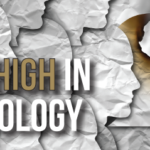
Image Credit: POPTIKAR/SHUTTERSTOCK.COM
Physician burnout is high and climbing. A 2015 report published by Medscape showed that nearly half (46%) of physicians surveyed responded that they were experiencing burnout; that number is up from 39.8% reported in a similar survey in 2013.1
These physicians experience the tell-tale signs of burnout: loss of enthusiasm for work (or emotional exhaustion), feelings of cynicism (or depersonalization) and low sense of personal accomplishment.2 The toll burnout takes on physicians goes well beyond ill effects on professional and personal health, and may erode their ability to maintain allegiance to the Hippocratic Oath that anchors all physicians to place the needs of the patient first. With burnout comes the increased risk of medical error and a decrease in the quality of patient care.
Although frontline emergency room and primary care physicians have the highest rates of burnout, all physicians are at risk. It’s estimated that up to 60% of physicians will experience burnout during their careers.3
And it’s not just mid-career physicians who are burning out.
“Initially, it was thought that people begin to burn out in mid-career,” says Prashant Kaushik, MBBS, rheumatology lead physician/section chief, Stratton VAMC, and associate professor and program director for the Rheumatology Fellowship Department of Internal Medicine, Albany Medical College, Albany, N.Y. “That is a myth. Medical students, residents, fellows and, of course, practicing physicians in all levels of their career are burning out.”
Rheumatologists are no exception. The Medscape survey showed that 43% of rheumatologists reported burnout in 2015.1
What leads to burnout, and what is being done about it?
Causes
“The most important factor [leading to burnout] may be that we are addressing crisis after crisis after crisis day in and day out,” says Luke Fortney, MD, a family medicine doctor with Meriter Medical Group, Madison, Wis. “This alone can be fatiguing, and then add in a feeling of professional isolation, and burnout can exacerbate.”
Other common factors affecting burnout are increased bureaucratic tasks, long work hours, insufficient income, increasing computerization and documentation of clinical practice, and effects of the Affordable Care Act, which has provided needed insurance to many previously uninsured people while flooding an already overextended healthcare system with more patients.1
None of this may be new or news to the physician in the clinic. What may be new is what is being done to address this pervasive problem.
Time for the Mind
Just as the foundation of medicine is built on the work and thought of the ancient Greeks, a way to manage burnout is emerging that has an even older influence—the way of meditation, or in more contemporary parlance, mindfulness or mindfulness meditation.



